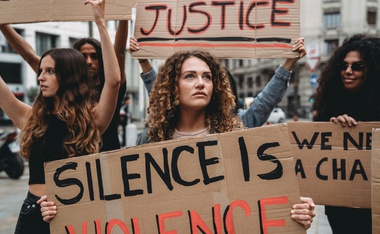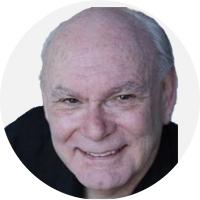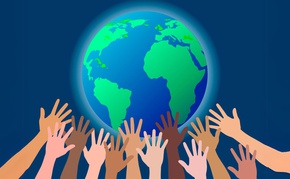The views expressed in our content reflect individual perspectives and do not represent the authoritative views of the Baha'i Faith.
Being a leader means having a strong commitment to justice – and that can sometimes cost leaders their lives. Would you die for justice?
During the social upheavals and turmoil of the 1960’s in the United States, for example, many leaders sacrificed their own lives in pursuit of justice – Medgar Evers, Jimmie Ray Jackson, the Reverend James Reeb, Viola Liuzzo, Malcolm X, and the Reverend Martin Luther King, Jr., just to name a few.
Every one of these workers for justice exemplified Baha’u’llah’s admonition to humanity a century earlier: “The light of men is Justice. Quench it not with the contrary winds of oppression and tyranny. The purpose of justice is the appearance of unity among men.”
RELATED: Alain Locke’s Profound Impact on the Civil Rights Movement
Accomplishments like the Civil Rights Act of 1964, the Voting Rights Act of 1965, and the Fair Housing Act of 1968 could not have happened without the quest for justice from that kind of altruistic, sacrificial, fully-committed leadership. Collectively, those leaders and the masses of justice-seeking people they worked with stirred the conscience of the nation with their complete commitment to justice, risking their lives to call attention to the problems besetting the social, educational, and economic standing of African Americans.
On 12 April 1964, Malcolm declared, “Any time you know you are in accord with justice, then die for what you believe in. But do not die alone. Let your dying be reciprocal. This is what is meant by equality.” He was assassinated less than a year later on 21 February 1965.
On 4 April 1967, Martin took a huge risk in his “Beyond Vietnam” speech when he warned, “The image of America will never again be the image of revolution, freedom, and democracy, but the image of violence and militarism.” It cost him dearly, both in lost supporters and emboldened enemies. He was assassinated exactly one year later.
Some mistakenly believe that these leaders operated within the paradigm of either/or – either you are for me, or you are against me. There is no middle ground when this paradigm informs your worldview. You either win or you lose. But that analysis ignores the many years worth of meetings, organizing, speaking, inspiring, marching, and writing – the real work these leaders devoted their lives to and died attempting to continue.
The either/or paradigm can be useful when there is a moral standard for which one can be held accountable, especially when you can quantify the accountability. The measure of the success of the sit-in at the Woolworth’s lunch counter in Greensboro, North Carolina in 1960, was easy to quantify because it represented an either/or proposition: either the sit-in participants got fed or they were denied service.
However, there is a profound difference between integrating the lunch counter of a Woolworth’s and the lunch counter of the heart. The measure of success at the heart’s lunch counter is not quantifiable. This is because the transformation of the social landscape occurs mostly at the grassroots level on a heart-to-heart basis, and cannot be quantified in an either/or paradigm.
Perhaps this explains a new phenomenon at work today in social justice movements which eschews traditional leadership roles. That phenomenon, composed of men and women who have evolved away from the individualistic state of mind into one that reflects the possibilities of cooperation and unity, manifests the appreciation of the eternal authority of community and brotherhood in solidarity. This system looks to displace the authority of individuals with the cooperation of the collective in molding the moral character of the social atmosphere.
Because of the nature of the challenges in today’s social landscape, we are witnessing the emergence of a new leadership paradigm – the beginning of the meek inheriting the Earth.
RELATED: Step by Step to a True World Peace
At the time Christ promised that inheritance to the meek, there was no way it could have been achieved. People rarely traveled more than a few days’ walk from the place where they were born, and much of the world was unknown to most. But over the past hundred plus years, the world’s Baha’is have built a global system of administration that is spiritual at its roots, open in its methods, and forward-looking in its goals. This system creates institutions that make it impossible for factions, political parties, or cliques to form, and to which, unassuming, honest, and fair-minded people are democratically elected, by secret ballot without nominations or any campaigning. This system does away with the many issues and problems that afflict figureheads and leaders, creating a worldwide, inter-linked set of democratically-elected institutions whose “watchword is the unification of the human race,” wrote Shoghi Effendi, the Guardian of the Baha’i Faith in his book The World Order of Baha’u’llah, and “its standard the “Most Great Peace”.
At its present stage of development, that Baha’i administrative system is helping to facilitate the needs of the world today. Ultimately, Baha’is believe, it will develop into a model for how the world could potentially function harmoniously and unitedly in the future.
The solutions to the complex problems we face will not come easily. The challenges of today require leaders who will devote their energy toward promoting a new set of values and a new way of relating. These new challenges require the replacement of outdated modes of thought and behavior with a worldview recognizing the oneness of humanity.
The caliber of leadership needed is the same as yesterday, but what has changed is these challenges cannot be reduced to either/or propositions. Instead of dying for justice, we can live for it. In this new process, brought by Baha’u’llah and now in use all over the world, solutions appear organically as authentic bonds of trust are built, as prejudices are conquered, and as true collaboration proves possible.
















Comments
Sign in or create an account
Continue with Googleor